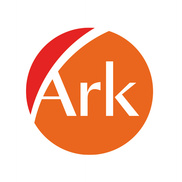Overview
Join us as we discuss the effect of Section 156 of the Building Safety Act 2022 and the amendment of the Regulatory Reform (Fire Safety) Order 2002 on fire risk assessments across all types of buildings in the UK.
After a short presentation outlining how we got to where we are, the requirements of Section 156 for all risk assessments (including beyond residential), the types of fire risk assessment for residential blocks and the new principles around the management of risk, we will discuss practical insights on what a new fire risk assessment needs to cover and how risk management needs to change especially for those managing residential blocks to meet the new prescribed principles.
Under the Regulatory Reform (Fire Safety) Order 2005 (as amended) (FSO) ‘responsible persons’ are required to ensure that they complete a fire risk assessment for the areas under their control. Responsible persons can be an amalgam of owners, facilities managers, managing agents as well as commercial or retail tenants. Under the new amendments to the FSO responsible persons have a host of new requirements
When it comes to the Building Safety Act 2022, Fire Risk Assessments are one of the backbones of how higher-risk buildings are managed, and form a pivotal role in the development of the Safety Case Report and the on-going demonstration to the Building Safety Regulator and importantly the Residents, that those who are accountable are taking the management of building safety seriously and are assessing all of the risks and taking action where necessary.
We now have two regimes when it comes to the management of fire safety with two different pieces of legislation, multiple enforcers and two different sets of guidance and requirements. Understanding what is required and plotting and managing your course through these regimes can be confusing.
During the session we will consider the key elements of effective fire risk assessment, including:
- Changing Culture
- How did we get here and the ‘Two Regimes.’
- The Impact of Section 156
- The Impact on HRB’s and the Safety Case Report
- Types of Residential FRA
- The Management of Risk
- The Prescribed Principles
- Consequences
Sponsors



